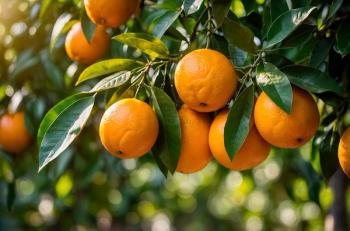
- Nutritional Outlook Vol. 17 No. 7
- Volume 17
- Issue 7
Future Applications for Enzyme Supplements
Exciting new health applications for enzymes
No doubt about it-enzymes command respect as a growing segment of the nutritional supplements industry. The demand for enzyme-based supplements “has never been stronger,” says Scott Ravech, CEO of Deerland Enzymes (Kennesaw, GA).
Not even a weak economy can hold enzymes back. In fact, enzyme supplement sales have seen consistent growth over the past six years, Ravech says. Based on the significant growth his company has seen in recent years, he estimates that the enzyme category is growing at double the rate of the supplement market as a whole. Market specialist Sloan Trends even identifies digestive enzymes as one of the top supplement ingredients for 2013–2016, with projected growth of 6.3% over that time period.
So, what’s driving enzyme demand? Healthcare reform and “the rising costs associated with wellness” are certainly playing roles in enzymes’ steady growth, says Melony Fuller, director of marketing at National Enzyme Co. (Forsyth, MO). Consumers are taking more control of their healthcare and looking increasingly to enzymes and other supplements for support.
Enzymes may be an established arm of the supplements industry, but don’t call them boring; thanks to evolving research and development, today’s enzymes are taking on some of consumers’ biggest current health concerns. Among the most promising, exciting applications for supplemental enzymes are gluten digestion, digestion of plant proteins, cardiovascular support-and, potentially, blood glucose control.
Gluten Intolerance/Sensitivity
No matter the reason, more consumers today are looking to eliminate gluten (a protein) from their diets. This has sparked renewed interest in protease enzymes-those that break proteins down-for their potential to help individuals who have trouble digesting gluten.
Certain proteases might effectively assist in combating gluten sensitivities. According to Tom Laaman, PhD, technical director at enzyme supplier BIO-CAT (Troy, VA), enzyme firms, including his own, are working to identify proteases “that act quickly enough to break down the gluten as it enters the stomach.”
Still, there are challenges here, he says. One is devising an in vitro test that can, with certainty, confirm whether protein hydrolysis is fast enough to be effective.
Deerland’s Ravech calls gluten intolerance “an especially good candidate for an enzyme-based solution.” His company recently completed a human clinical trial for its Glutalytic product, which is a blend of protease enzymes “designed to break down gluten more quickly and efficiently than typical DPP4.” (DPP4 is dipeptidyl peptidase, a single protease that breaks down wheat protein.) Ravech says that data from the double-blind, randomized, placebo-controlled study showed a statistically significant improvement when compared to the placebo group for several symptoms, including pain and bloating.2
Walter Crinnion, chief science officer for enzyme brand Enzymedica (Venice, FL), points out that while certain digestive enzymes have proven to be quite effective in breaking down gluten in the stomach prior to its release into the small intestines, more research on enzymes such as DPP4 and prolyl endopeptidase is needed.
Heart Health
The non-digestive enzyme nattokinase has undergone some study of its cardiovascular effects. Duffy MacKay, ND, senior vice president of scientific and regulatory affairs for the Council for Responsible Nutrition (CRN; Washington, DC), characterizes nattokinase as among “the most exciting” non-digestive enzymes available now.
Nattokinase is extracted from the traditional Japanese food natto, which is boiled soybeans that have been fermented with Bacillus natto bacterium. It is, says Crinnion, “particularly beneficial for supporting heart health and promoting healthy circulation.”
Deerland Enzymes’ vice president of technology, John Deaton, PhD, adds that “human studies have found that nattokinase may be effective in promoting healthy blood pressure and may reduce clotting factors to help support cardiovascular health.”
Credible studies appear to support Crinnion’s and Deaton’s assertions, including one from March 2009 titled “Nattokinase decreases plasma levels of fibrinogen, factor VII, and factor VIII in human subjects” published in Nutrition Research, and another published in August 2008 in Hypertension Research: Official Journal of the Japanese Society of Hypertension. According to the Hypertension Research authors, “Nattokinase supplementation resulted in a reduction in systolic blood pressure and diastolic blood pressure. These findings suggest that increased intake of nattokinase may play an important role in preventing and treating hypertension.” 3,4
Serratiopeptidase is another non-digestive enzyme with heart-health potential. Crinnion, however, says that published studies that would support a cardiovascular claim are still lacking.5 Current human studies on serratiopeptidase point to efficacy as an anti-inflammatory agent, particularly in oral-surgery applications.
Plant-Based Diets
Alpha-galactosidase, known primarily in the commercial marketplace as Beano, has been available-and widely regarded as safe and effective-for years. This supplemental enzyme and other cellulases, heavy cellulases, xylanases, and beta-glucanases break down complex carbohydrates such as oligosaccharides. They may attract renewed attention in coming years as more Americans shift to plant-based diets.
“These people are consuming a much larger percentage of cellulosic material-basically cell walls of plants,” Laaman explains. “Non-starch polysaccharides, cellulose, and pectins-each present in an all-plant diet-are helpful at some level for health, but they can also cause indigestion issues.”
Enzymes that break down these plant components could be in much greater demand in the near future, Laaman says. “I see growth in that area because people want to eat more vegetable proteins. If we can give them a way to do that and have less digestion discomfort, then [enzyme supplements] could help the continued growth [of plant-based diets].”
Glucose Support
Research is still in the early stages on whether the enzyme transglucosidase helps support healthy blood glucose levels, but the possibility has certainly piqued the interest of some enzyme suppliers and supplement manufacturers.
Deerland’s Deaton explains the mechanism of transglucosidase this way: “Instead of allowing starch to be converted into sugars that spike blood glucose and trigger an excessive release of insulin, transglucosidase converts starch into beneficial prebiotic fibers-oligosaccharides.” He says that in vitro and in vivo laboratory studies have shown the ability of transglucosidase to reduce insulin and glucose levels.
While the initial information looks positive, MacKay warns that “smaller science should not be overstated,” and The Herbal Pharmacist’s creator and blogger, David Foreman, points out that the “newer” enzymes like transglucosidase “lack significant research in general.”
Tried and New
Digestive enzymes have been consumed as supplements for decades, but, as Bret Wyant of American Laboratories Inc. (Omaha, NE) puts it, “Enzyme knowledge is well understood; however, there are always new studies to prove additional enzyme benefits.”
One enzyme in this category is bromelain, derived from pineapples. Widely known and with a long history, bromelain has been taken as an anti-inflammatory and analgesic supplement for conditions ranging from skin wounds and post-surgical recovery to osteoarthritis support. Deerland’s Deaton describes bromelain as “one of the more commonly studied enzymes,” a fact which is borne out by a quick search on enzyme research. Still, much is still unknown about bromelain and its potential uses, which is why more clinical trials are underway “across the nation,” with additional studies planned for the future, Deaton says.
Finally, the very well-known lactase enzyme, which breaks down the milk sugar lactose, is worth a mention for its continued growth in the global enzyme supplement market.
“About 80% of the world’s population cannot break down lactose,” BIO-CAT’s Laaman notes, including most Asians, most South Americans, and most Southern Europeans. And as other parts of the world shift toward a Western diet, demand for the lactase enzyme grows in those regions, too.
The science supporting lactase for lactose intolerance is sound and appears to go back several decades. More recently, a 2011 study from Iran’s Journal of Isfahan Medical School confirmed that lactase tablets “significantly reduced clinical symptoms associated with lactose intolerance compared with placebo.”6 An Italian study published in 2005 reached the same conclusion for the enzyme beta-galactosidase, of which lactase is a subclass, with those taking the supplement experiencing no side effects.7
Future Trends
Commercial, consumer, and medical interest in enzymes as human-health supplements continues to grow. Those interviewed for this article expect to see supplements containing a combination of digestive enzymes, probiotics, and botanicals continuing to hit the market.
Deerland’s Ravech says these combination digestive products “are ideal, freeing the consumer from having to take several different single-ingredient supplements as part of their daily regimen.” We will also soon see enzyme supplements reach past specialty health food stores and extend into big-box stores nationwide, predicts American Laboratories’ Wyant.
As for published enzyme science, it could certainly be stronger and deeper; however, Ravech is upbeat: “The entire supplement industry is going through a time which could be characterized as a ‘clinical revolution,’ in which the demand for clinical validation for dietary supplement products has never been higher. For enzymes in particular, we’re seeing the same trend. There’s certainly room for the body of scientific research on enzymes to be strengthened, and industry is responding by developing more and more clinical studies to support the products going to market.”
Sidebar: Enzymes 101
All living organisms produce enzymes-proteins with highly specialized catalytic functions responsible for many essential biochemical reactions in plants, animals, and human beings. Unlike other proteins, enzymes can facilitate biochemical reactions without undergoing change themselves.1
Some of the most common enzymes on the market today are amylases, bromelain, hemicellulase, cellulase, lactase, lipase, papain, proteases, and trypsin. Generally categorized as non-toxic and safe, enzymes have an extensive history of use in foods such as cheese and miso. In the area of supplements, enzymes taken as aids to digestion have been marketed in the United States for roughly 70 years, yet “enzyme therapy is one of the last great frontiers in natural medicine,” says Walter Crinnion, chief science officer for Enzymedica.
“I believe we are just now beginning to understand the important role that digestive enzymes play in our health,” Crinnion says. In fact, non-digestive enzymes, including those discussed in this article, have only very recently entered the market but already are garnering a good deal of interest from the scientific community.
Sidebar: Enzyme Best Practices
In December 2013, the Council for Responsible Nutrition (CRN; Washington, DC) and the Enzyme Technical Association (ETA) jointly published a set of voluntary guidelines for manufacturers and marketers of enzyme dietary supplements. “Enzyme Dietary Supplement Products Best Practices Guide” offers “clear, science-based best practices for delivering safe, high-quality enzyme supplement products to customers and consumers,” according to the press released issued by the two organizations.
The guidelines arose from a “concern on the part of some of ETA’s members that some of the nuances of enzyme handling were not being respected, such as the enzymes’ storage and temperature, and safety,” says Duffy MacKay, ND, CRN’s senior vice president of scientific and regulatory affairs.
Among the topics covered are safe handling, labeling, and storage of enzyme ingredients-“all things the manufacturer needs to know to make sure that an enzyme dietary supplement, when it reaches the consumer, is active and contains what it says it does,” MacKay explains. The guide is available free of charge on both CRN’s and ETA’s websites.
References (7)
- Ravech S et al. “Orally Administered Enzyme Food Supplement Safety Overview.” Enzyme Technical Association white paper (January 2012).
- Hudson M et al. “Glutalytic clinical trial for normal consumption of gluten containing foods.” Kennesaw State University, Kennesaw, GA
- Hsia CH et al. “
Nattokinase decreases plasma levels of fibrinogen, factor VII, and factor VIII in human subjects. ” Nutrition Research, vol. 29, no. 3 (March 2009): 190-196. - Kim JY et al. “Effects of nattokinase on blood pressure: a randomized, controlled trial.” Hypertension Research, vol. 31, no. 8 (August 2008): 1583-1588.
- Sannino G et al. “Combination therapy including serratiopeptidase improves outcomes of mechanical-antibiotic treatment of periimplantitis.” International Journal of Immopathology and Pharmacology, vol. 26, no. 3 (July-Sept. 2013): 825-831.
- Ghahremani R and Behzad A. “The effects of exogenous lactase on improving gastrointestinal symptoms in patients with lactose intolerance.” Journal of Isfahan Medical School, vol. 28, no. 115 (January 2011): 1-8.
- Montalto M et al. “Effect of exogenous beta-galactosidase in patients with lactose malabsorption and intolerance: A crossover double-blind placebo-controlled study.” European Journal of Clinical Nutrition, vol. 59 (2005): 489-493.
Photo © iStockphoto.com/decade3d
Articles in this issue
about 11 years ago
The Role of Inspection Systems in FSMA Complianceabout 11 years ago
Are Contract Manufacturers Satisfying GMP Requirements?about 11 years ago
Global Ingredient Sourcing: What to Know Todayabout 11 years ago
High-Performance Sports Nutrition Ingredientsabout 11 years ago
Breaking Boundaries: The International Market for Dietary Supplementsabout 11 years ago
Asia Pacific Ripe for Health and Wellness Marketabout 11 years ago
Nutrients for KidsNewsletter
From ingredient science to consumer trends, get the intel you need to stay competitive in the nutrition space—subscribe now to Nutritional Outlook.





